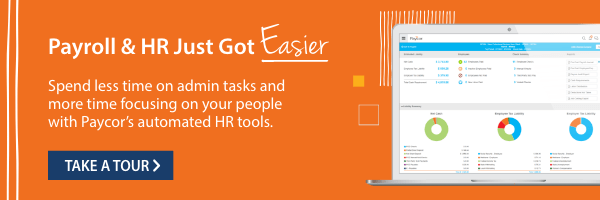Running a Restaurant is Not for the Faint of Heart
Running a restaurant isn’t something anyone does for easy profits. Sixty-percent of restaurants (and in some regions, 90%) fail within their first year, according to Philip B. Stark of the University of California, Berkeley. Even when everything works, industry profit margins are typically stuck in the low single digits (National Restaurant Association).
But There is an Upside
So, are restaurant entrepreneurs crazy? No. After all, someone’s turning a profit. Restaurant industry sales are set to exceed a record $863 billion in 2019 (that’s 3.6% year-on-year growth). Consumer confidence is so strong that the National Restaurant Association’s 2019 annual report refers to it as “pent-up demand.” People still love the dining experience, there’s demand out there… but what does it take to earn that priceless consumer loyalty?
4 Essential Skills For Restaurant Entrepreneurs
- People Skills
It almost goes without saying, but let’s just get it out there: if you can’t deal with people, the restaurant business isn’t for you. Running a profitable restaurant business requires interacting with all kinds of people, both front and back of house. And Yelp gives the old adage “the customer is always right” new meaning. Restaurant managers must deal with complaints with a smile — even when their patience has been 86’d.Dealing with staff is where a successful restaurant manager really has to shine. The industry is the nation’s large employer of teenagers, and is often their first experience of work. Compared to the workforce as a whole, restaurant staff are 180% more likely to be students, and almost twice as likely to work part time. That makes it no surprise that overall staff turnover in the industry reached 74.9% in 2018 (National Restaurant Association). If you can get the turnover rate down, it can be a real competitive advantage. That’s why employee experience, company culture and learning/development are all going to be priorities for restaurant owners in 2020.So, number one — people skills. - Leadership Skills
A restaurant always has to be operating near peak efficiency. The key are quick turnaround times — how long it takes from the moment a diner walks in the door till the moment they leave. That takes a highly engaged team where everyone knows their roles — in an industry where three out of four staff won’t last the year. The things is, some restaurants do keep producing the goods year after year, and in doing so keep staff — and customers — around for longer. The secret? It’s all about leadership. Seventy-one percent of variance in employee engagement comes down to managers (Gallup). Stop and think about that — it’s amazing to think leadership has that dramatic an impact. Now, consider that only 35% of restaurant workers are “extremely proud” of the services offered by their restaurant and even less — only 26% — would actually encourage their family and friends to eat there. All that points to one thing: leadership is a competitive advantage. If you want to beat the competition, inspire restaurant staff with a sense a mission and pride. - Financial Knowledge and Skill
Even with a highly engaged workforce, a restaurant manager needs to know their way around P&L statements and be able to create a viable business plan. Running a restaurant isn’t just about making the numbers work – no easy task – but keeping them that way. Everything might be running smoothly — but rising staffing and supply costs can easily throw a wrench in the works. The current economy is a perfect storm for rising labor costs – unemployment is at a 50-year low, minimum wages have risen in various states, and market oversaturation has made it tough to find qualified workers. A restaurant’s other great variable outlay, food costs, are also trending up. Wholesale food costs rose 2.6% year-on-year to September 2019, according to Producer Price Index figures.This sort of added pressure on your budget can decimate a healthy profit. And if your only solution is to pass these rising costs onto consumers, or cut quality, don’t expect customer loyalty to see you through.
- Creativity
As rising expenses eat into your profit margins – with fixed costs that can’t go any lower – just keeping things steady can require innovation. Every detail matters, like optimizing your table arrangement to maximize the number of (more profitable) ‘two-tops’, fixing your reservation policy to reduce the cost of ‘no shows’ and strategically offering discounts. Success requires adaptability – starting with understanding your target demographics and how their tastes are changing. Today’s restaurant market is dynamic, and it takes skill to spot new industry trends early and identify what’s right for your business, or else you risk being left behind. The challenge, as always, is to keep your menu fresh but maintain the favorites that keep people coming back.However, no matter how creative your menus, your restaurant is only ever as successful as its marketing. Reviews matter, but they need to be combined with a proactive social media strategy. Forty-five percent of American diners have been persuaded to try a new restaurant thanks to social media, according to marketing agency MGH – and if you aren’t part of the conversation, you’re limiting your potential, and your profits.
Bottom Line
All the skills needed to run a profitable restaurant business don’t always need to come together in one person. In many restaurants, these responsibilities will be shared between many employees. But the core challenge remains – creating a memorable yet affordable customer experience in the face of rising costs, high staff turnover and unprecedented industry competition.
Paycor Knows the Restaurant Business
Since 1990, Paycor has partnered with restaurants to drive down turnover, make scheduling and timekeeping both easy and accurate and stay ahead of the tax and compliance curve. Learn how Paycor can help you solve problems and grow.










